Pasta is one of the most popular foods in the world, and it is the key ingredient in numerous famous dishes.
On the negative side, pasta is also a significant source of refined carbohydrate, which many of us would benefit from limiting.
For those who are trying to cut down on carbs, this article looks at 12 of the best low carb pasta alternatives.
While none of these options will taste exactly like pasta, they are all tasty recipes.
1) Zucchini Noodles (Zoodles)
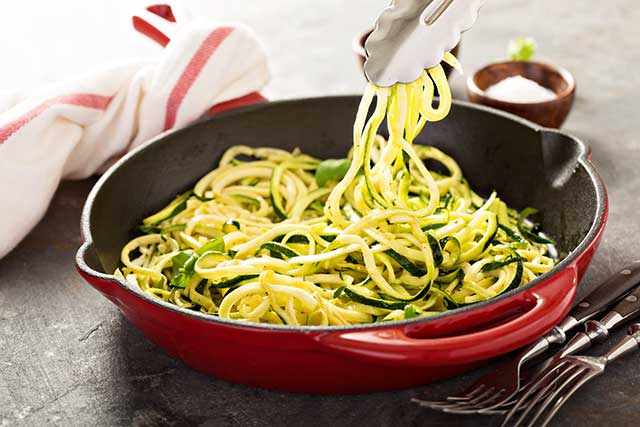
Zoodles are a favorite choice for low-carb recipes, and all you need to make them is zucchini and a spiralizer.
However, the way you make them is crucial if you don’t want to end up with soggy and watery zoodles.
Zoodles are a tough act to beat for low-carb friendliness, and they supply only 2.2 grams of net carbs per 100 grams (1);
| Calories | 16 kcal |
| Carbohydrate | 3.3 g |
| Fiber | 1.1 g |
| Net Carbs | 2.2 g |
| Fat | 0.2 g |
| Protein | 1.2 g |
Pros
- Very low in carbs
- A good source of vitamins and minerals
- Look (slightly) similar to spaghetti
- Taste good
Cons
- They can become too soggy if overcooked
2) Eggplant “Lasagna” Sheets
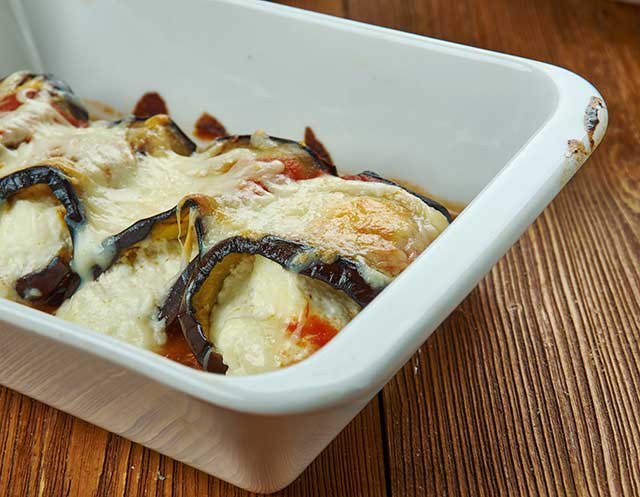
Firstly, if you want something that looks exactly like real lasagna, then you will be disappointed.
However, sliced eggplant works very well as a low-carb replacement option for regular lasagna sheets.
For one thing, eggplant and pasta share a similar spongy texture that draws in moisture. In other words; the slices of eggplant can absorb lots of flavor from the lasagna sauce.
Secondly, eggplant barely contains any digestible carbohydrate, and 100 grams offers only 2.3 grams of net carbs (2).
To use eggplant as “lasagna” sheets, just cut the vegetable into thick lengthwise slices and use as you would normal lasagna.
| Calories | 24 kcal |
| Carbohydrate | 5.7 g |
| Fiber | 3.4 g |
| Net Carbs | 2.3 g |
| Fat | 0.2 g |
| Protein | 1.0 g |
Pros
- Good texture
- Very low in net carbs
- Absorbs flavors in a similar way to regular pasta
Cons
- It looks different, and it is visually incomparable to regular lasagna.
3) Enoki “Noodle” Mushrooms
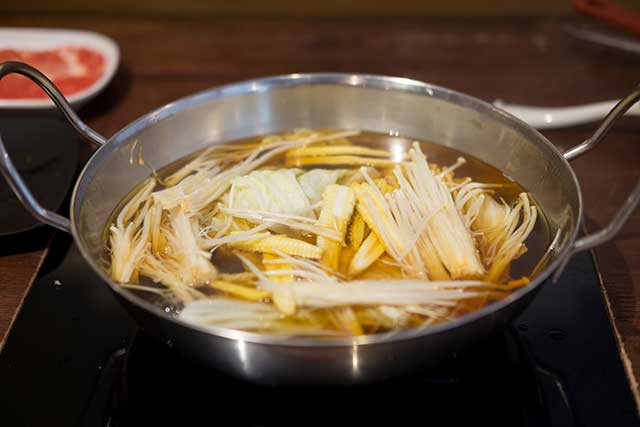
People have been using enoki mushrooms as a low-carb “noodle” for a long time, and they certainly look the part.
That said, the taste and texture of enoki mushrooms are far away from the real thing.
Depending on the cooking method and time, enoki mushrooms can be either slightly crunchy or very soft.
Enoki mushrooms are particularly popular in the Far East, and they feature in various Japanese soups.
Also, it is possible to use them as a low-carb alternative to pasta in dishes like Carbonara and Alfredo.
Per 100 grams, enoki mushrooms contain 5 grams of net carbohydrate (3).
| Calories | 44 kcal |
| Carbohydrate | 7.7 g |
| Fiber | 2.7 g |
| Net Carbs | 5.0 g |
| Fat | 0.3 g |
| Protein | 2.6 g |
Pros
- Look similar (ish) to spaghetti/noodles
- Contain minimal carbs
- Enoki mushrooms soak up flavor like regular spaghetti
Cons
- Can become overly soft when cooked for too long
- Although they can absorb different flavors, they still have a bold mushroom taste.
4) Shirataki (Konjac) Noodles
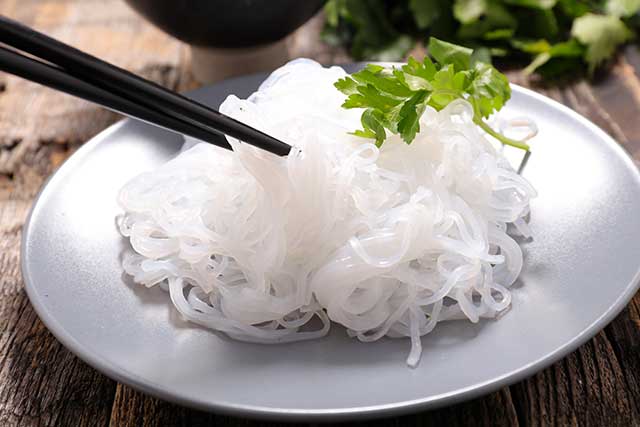
You may also know shirataki noodles by their alternate name of ‘miracle noodles,’ and they are a low-carb and low-calorie replacement for regular noodles.
There are three ingredients in these noodles; konjac root flour, water, and calcium hydroxide. The actual composition of these ingredients is 97% water, 3% konjac root, and trace amounts of calcium hydroxide.
Since not many people know that last ingredient, calcium hydroxide is a kind of food additive that can improve the digestibility of food, and the bioavailability of nutrients in it (4).
When it comes to the taste of miracle noodles, it seems that people either love them or hate them.
While not particularly flavorful, the noodles have a chewy/rubbery texture and absorb some of their surrounding flavors.
With the only carbohydrate (and calories) coming from glucomannan, a type of fiber, these noodles are virtually zero-carb and calorie-free.
Pros
- Almost no carbs or calories
- Can taste chewy somewhat like regular noodles
- May have a positive impact on blood sugar regulation (5)
Cons
- No real flavor, but perhaps this is a positive point if the sauce they are in tastes good?
5) Kelp Noodles
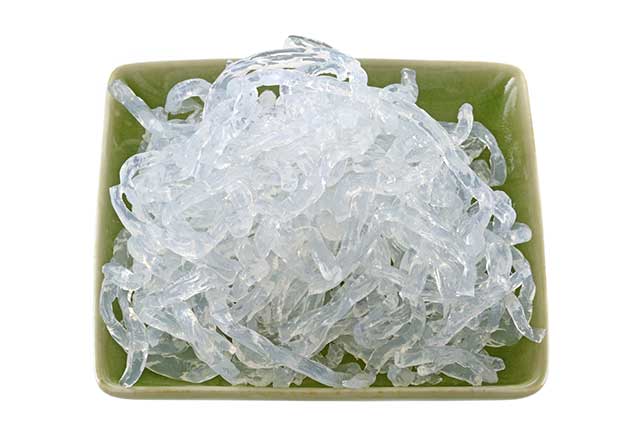
Kelp noodles have a translucent appearance somewhat similar to shirataki noodles, and they come from seaweed.
These noodles have three ingredients; water, kelp, and sodium alginate.
For anyone unaware of the last ingredient, sodium alginate (E401) is a food additive with thickening properties. The additive is an extract from brown seaweed, and it is used to thicken various foods (with ice cream being a notable example) (6).
Kelp noodles have no strong flavor, so they work well in a range of dishes. However, they don’t quite have the texture of traditional noodles, and they have more of a “crunch.”
All in all, kelp noodles are a healthy and reasonably tasty low carb alternative to pasta.
Nutritionally, kelp noodles offer the following values per 100 grams (7);
| Calories | 17 kcal |
| Carbohydrate | 4 g |
| Fiber | 4 g |
| Net Carbs | 0 g |
| Fat | 0 g |
| Protein | 0 g |
Pros
- Zero grams of net carbs
- Since kelp is among the most significant sources of iodine, kelp noodles should provide some of this important mineral (8)
Cons
- Not a like-for-like replacement and kelp noodles are crunchy rather than chewy.
6) Cabbage Spaghetti
Cabbage “spaghetti” is just shredded cabbage.
However, it tastes quite good and works reasonably well providing you don’t want an authentic pasta experience.
To make it, all you have to do is shred a large amount of cabbage and cook it in a bit of oil or butter.
Next, pour some meat and sauce over it, and you have a near carb-free pasta replacement.
Since cabbage is a nutrient-dense vegetable, this one offers lots of vitamins and minerals too.
Per 100 grams, cabbage spaghetti offers (9);
| Calories | 25 kcal |
| Carbohydrate | 5.8 g |
| Fiber | 2.5 g |
| Net Carbs | 3.3 g |
| Fat | 0.1 g |
| Protein | 1.3 |
Pros
- Healthy and nutritious
- Tastes good
- Minimal carbohydrate
Cons
- Doesn’t bear any resemblance to real pasta – it’s a completely different experience.
7) Spaghetti Squash
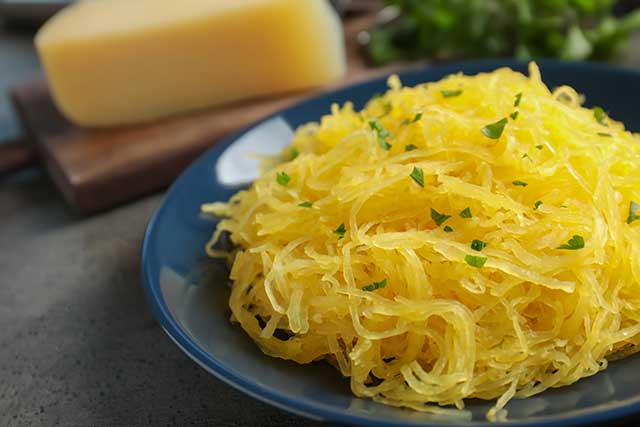
With a slightly sweeter, softer, and chewier taste than zucchini noodles, spaghetti squash makes an excellent pseudo-pasta.
For one thing, it tastes delicious, and it even looks something like real spaghetti too.
Once cooked, use a fork to scoop out the strands that look like spaghetti.
Add some meat, veggies, pasta sauce, and grated cheese, or any other low carb food, and you’ll have an authentic looking pasta dish.
Per 100 grams, spaghetti squash offers (10);
| Calories | 27 kcal |
| Carbohydrate | 6.5 g |
| Fiber | 1.3 g |
| Net Carbs | 5.2 g |
| Fat | 0.4 g |
| Protein | 0.7 |
Pros
- Great taste
- Looks just like the real thing
Cons
- Although still very low in carbohydrate, it is not quite as low as other options.
8) Eggplant Noodles
Generally speaking, all the points raised about eggplant “lasagna” apply to eggplant noodles too.
Nutritionally they offer the same profile, but the appearance and texture are somewhat different.
To make eggplant noodles, peel an eggplant or two and then use a spiralizer (disclosure: affiliate link) to cut them into long noodle shapes.
After this, lightly fry them in some olive oil and add a bit of salt and pepper.
While not quite as popular as zucchini noodles, this eggplant-based pasta substitute has a chewier texture and absorbs flavor better than zoodles do.
Per 100 grams, eggplant noodles offer (2);
| Calories | 24 kcal |
| Carbohydrate | 5.7 g |
| Fiber | 3.4 g |
| Net Carbs | 2.3 g |
| Fat | 0.2 g |
| Protein | 1.0 g |
Pros
- Similar to zoodles and other spiralized vegetable “noodles” but they absorb flavor better.
- Good texture
Cons
- Thicker pieces of eggplant (as in eggplant lasagna) absorb flavors from a dish better than thin noodle shapes do.
9) Palmini Noodles
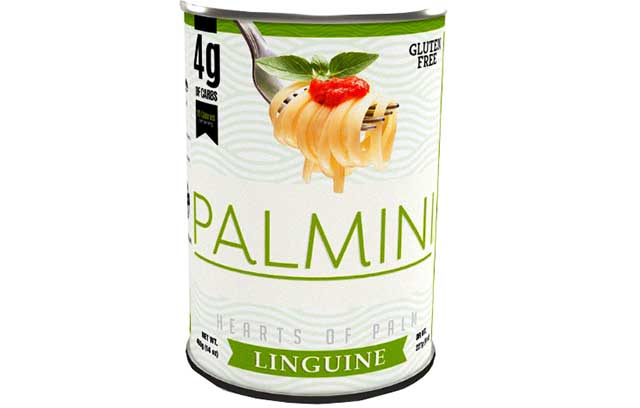
Palmini noodles are made from the edible bud of certain varieties of palm tree.
This bud is a vegetable otherwise known as ‘heart of palm.’
With a minimal carbohydrate content—over half of which is fiber—Palmini noodles are an excellent choice for anyone trying to reduce their carb intake.
Directly out of the can these noodles have a crunchy texture, but they take on a softer consistency after cooking.
Furthermore, the noodles are a good source of various vitamins and minerals, particularly iron and manganese (11);
| Calories | 28 kcal |
| Carbohydrate | 4.6 g |
| Fiber | 2.4 g |
| Net Carbs | 2.2 g |
| Fat | 0.6 g |
| Protein | 2.5 g |
In an FAQ, the manufacturers of Palmini noodles claim that “some people actually believe they are eating pasta.”
Pros
- Said to taste similar to the real thing (as part of a dish)
- Good source of essential nutrients
- Only 2.2 grams of net carbs
Cons
- Relatively expensive; the price starts at approximately $4 per can.
10) Black Bean Spaghetti
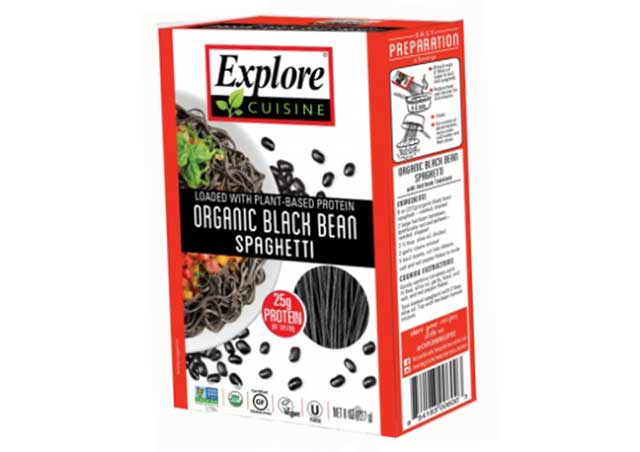
Generally speaking, all beans—including black beans—are fairly high in carbohydrate.
However, black bean spaghetti from Explore Cuisine is a somewhat low carb option.
The spaghetti is made exclusively from black bean flour, and it provides eight grams of net carbs per 56-gram serving.
Per 100 grams, this works out at around 14 grams of net carbohydrate (12);
This product is also a substantial source of dietary protein.
| Calories | 321 kcal |
| Carbohydrate | 33.9 g |
| Fiber | 19.6 g |
| Net Carbs | 14.3 g |
| Fat | 5.4 g |
| Protein | 44.6 g |
Although it is higher in carbohydrate than the other options, this may be the closest thing to the texture of real pasta.
Pros
- One of the closest-tasting lower carb alternatives to pasta
- A good source of minerals like iron and potassium
- Only 2.2 grams of net carbs
Cons
- Much higher in carbs than all the other low carb pasta options
11) Carrot Noodles
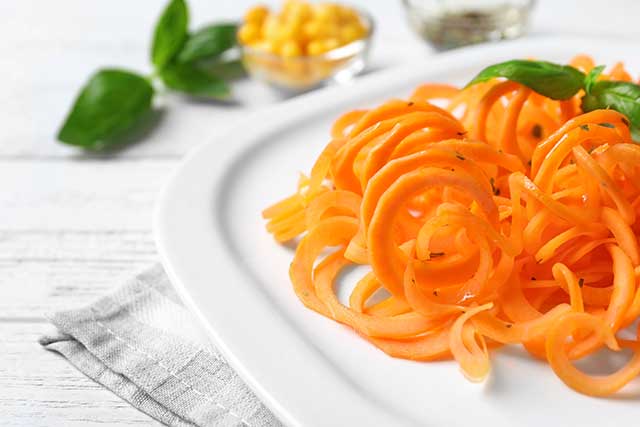
Yes, carrot noodles are a thing, and all you need to make them is a spiralizer.
While the idea of making some carrot spaghetti may not be particularly exciting, is it a good low carb option?
Per 100 grams, here is what they offer (13);
| Calories | 41 kcal |
| Carbohydrate | 9.6 g |
| Fiber | 2.8 g |
| Net Carbs | 6.8 g |
| Fat | 0.2 g |
| Protein | 0.9 g |
As shown, carrot noodles are not the lowest carb choice, but they are certainly much lower than traditional pasta.
However….. they don’t taste or feel anywhere close to pasta, and it is better to think of them as string-shaped carrots.
Pros
- Cheap and nutritious.
- Easy to buy/make
- Reasonably low carb
Cons
- In short; they are carrots, and they taste like carrots.
12) Oomi Noodles
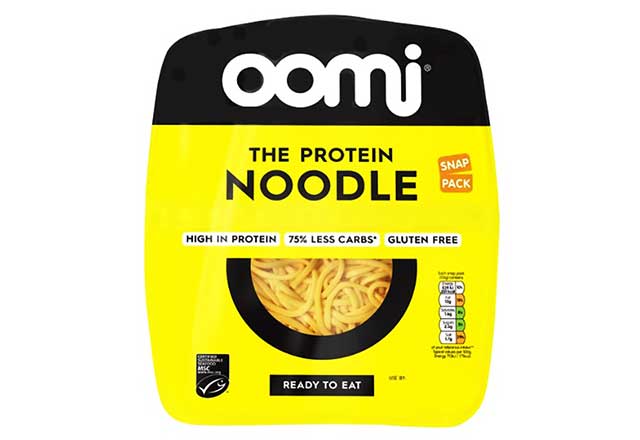
Oomi noodles are one of the more interesting low carb pasta alternatives, and their primary ingredient is fish protein.
As a processed food, they contain several different ingredients, as listed below;
- Fish protein from pollock and/or whiting and/or hoki
- Water
- Sunflower oil
- Starch
- Soy protein
- Milk protein
- Sugar
- Egg albumin
- Salt
- Carotenes (coloring)
- Xantham gum (a stabilizer)
- Yeast extract
As a processed product containing isolated protein, vegetable oil, various powders, and sugar, I wouldn’t say they are a healthy choice.
However, they are low carb and moderately high in animal protein, which may interest some people.
Here is their nutritional profile per 100 grams (14);
| Calories | 171 kcal |
| Carbohydrate | 6 g |
| Fiber | – |
| Net Carbs | 6 g |
| Fat | 11 g |
| Protein | 11 g |
These fish noodles are only UK-based at the moment, but the manufacturer has said that expanding overseas is “definitely on the agenda,” so keep an eye out if interested.
Pros
- Source of animal protein
- Reasonably low carb
Cons
- A processed product, not a particularly healthy ingredient profile
- Not the cheapest option
Which is the Best Low Carb Pasta Alternative?
If we proclaim one of these options the best, the answer depends on what the exact question is.
Bear in mind this is subjective and personal opinions will differ, but I would say spaghetti squash is the best-tasting pasta replacement.
On the other hand, if you’re looking for the most authentic tasting choice, that would probably be black bean spaghetti.
The lowest net carb option?
The winners there are kelp noodles and shirataki noodles.
More Low Carb Alternatives
See this guide to low-carb bread, or for those who enjoy baking at home, here are some low-carb flour options.
For more low-carb ideas, see these 25 delicious low-carb meatloaf recipes.

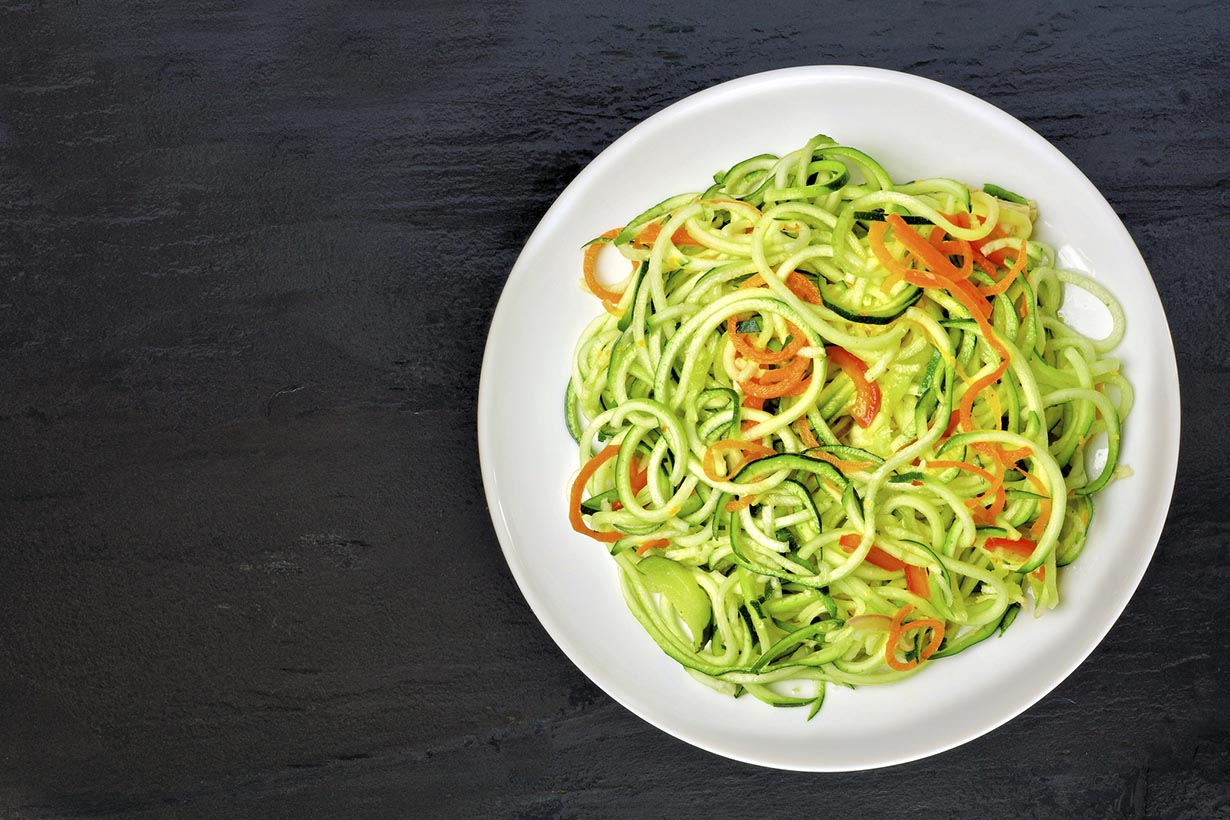
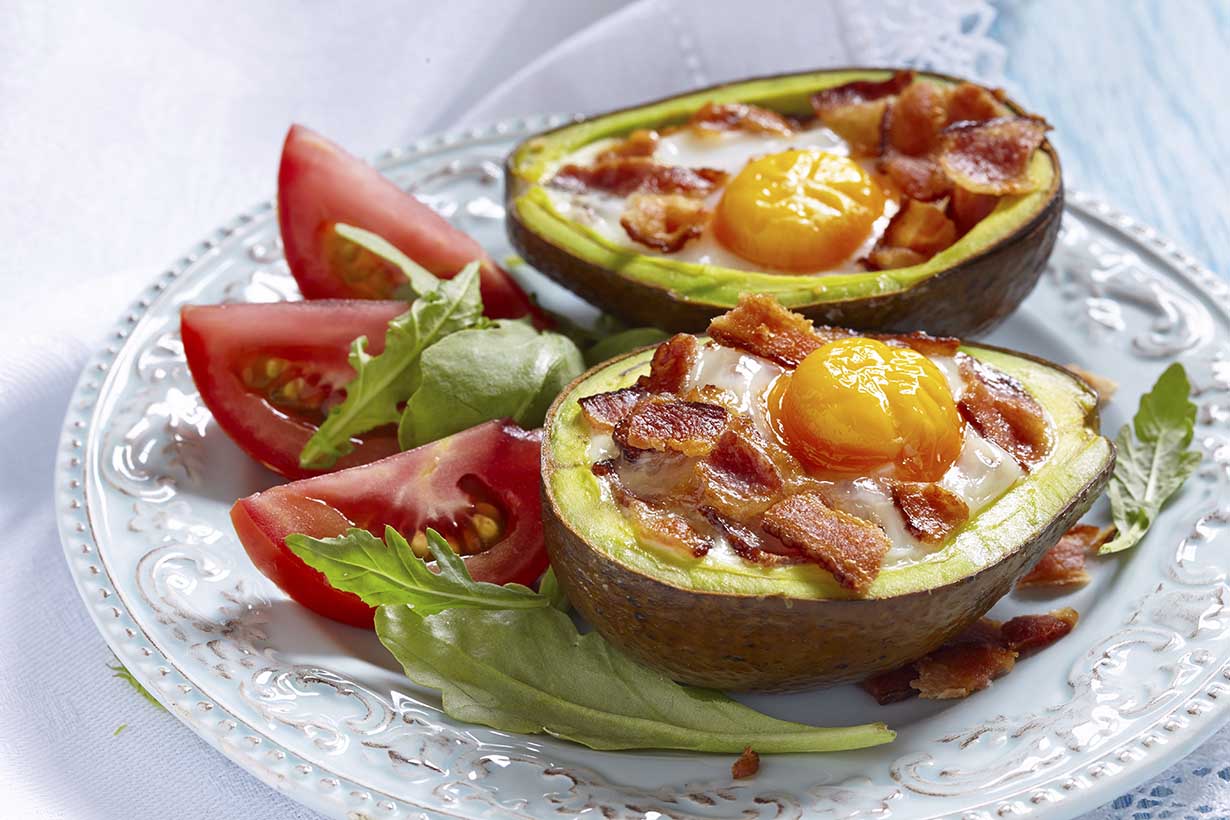
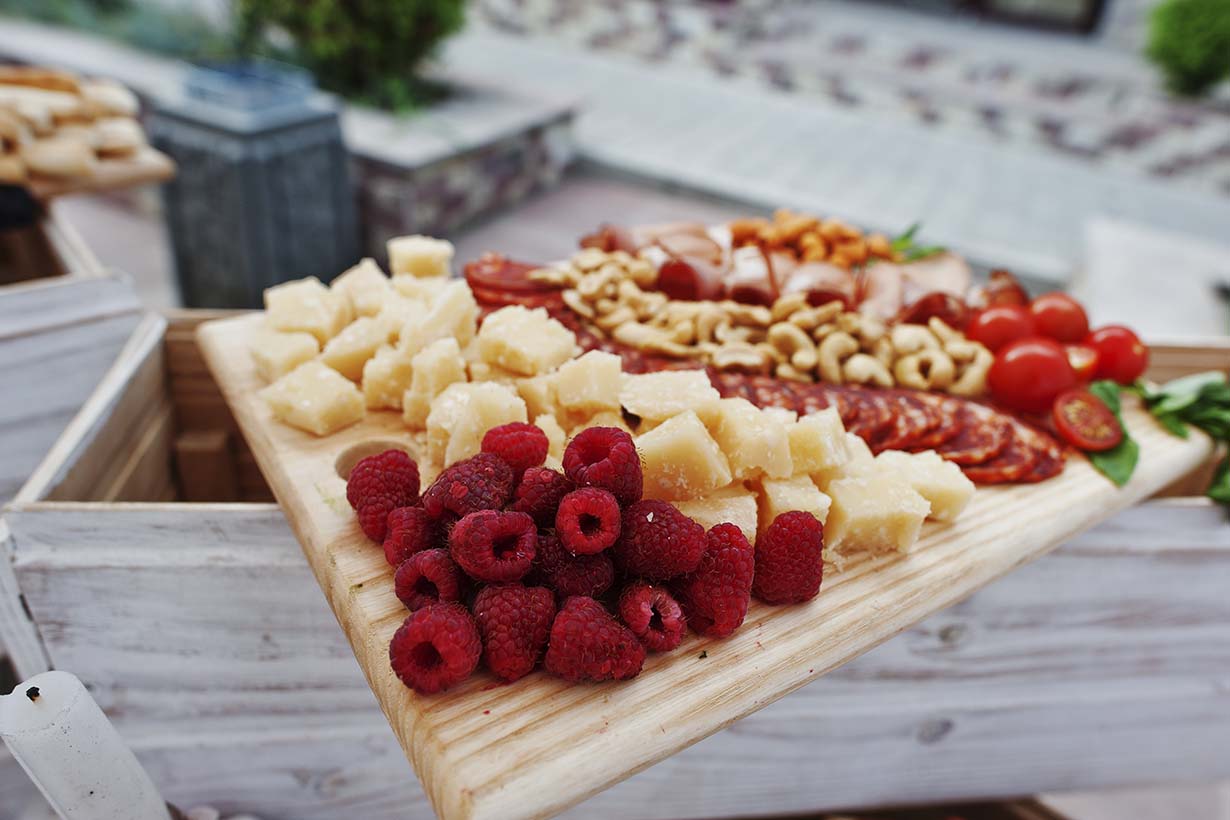
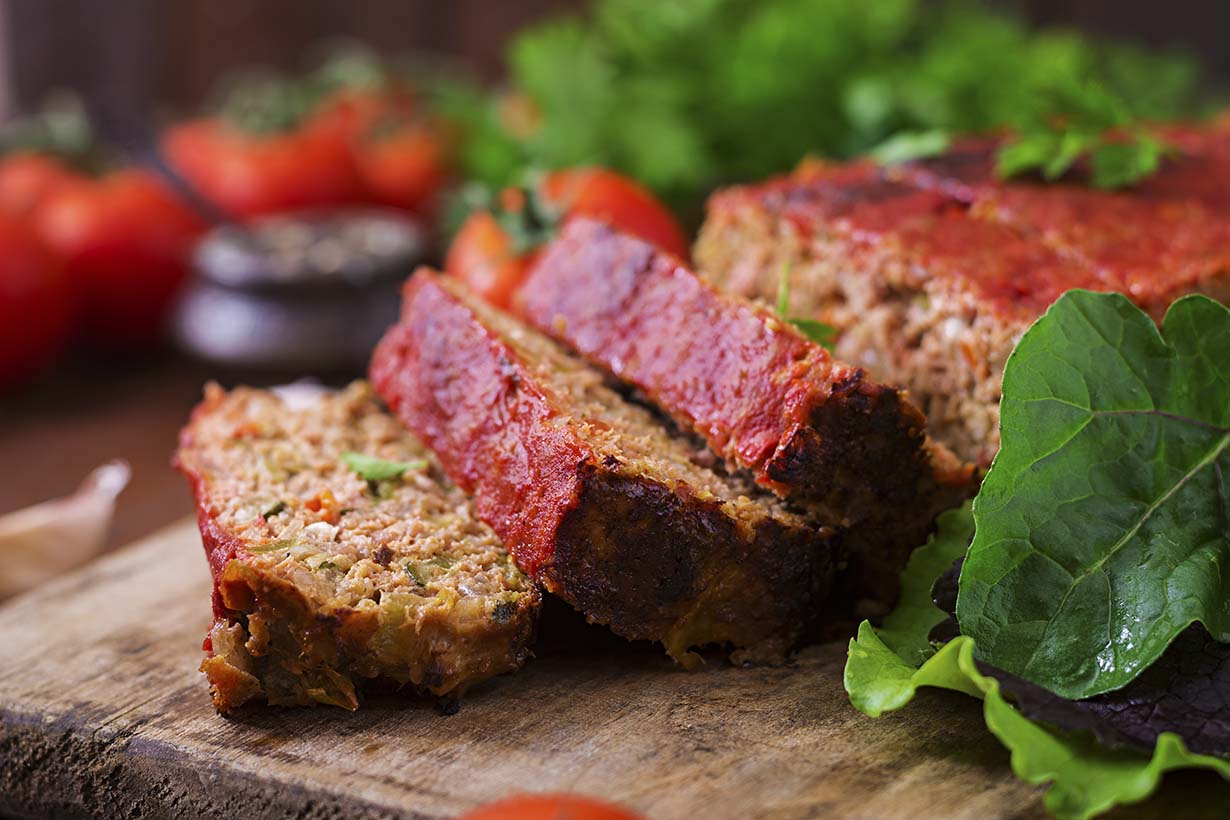
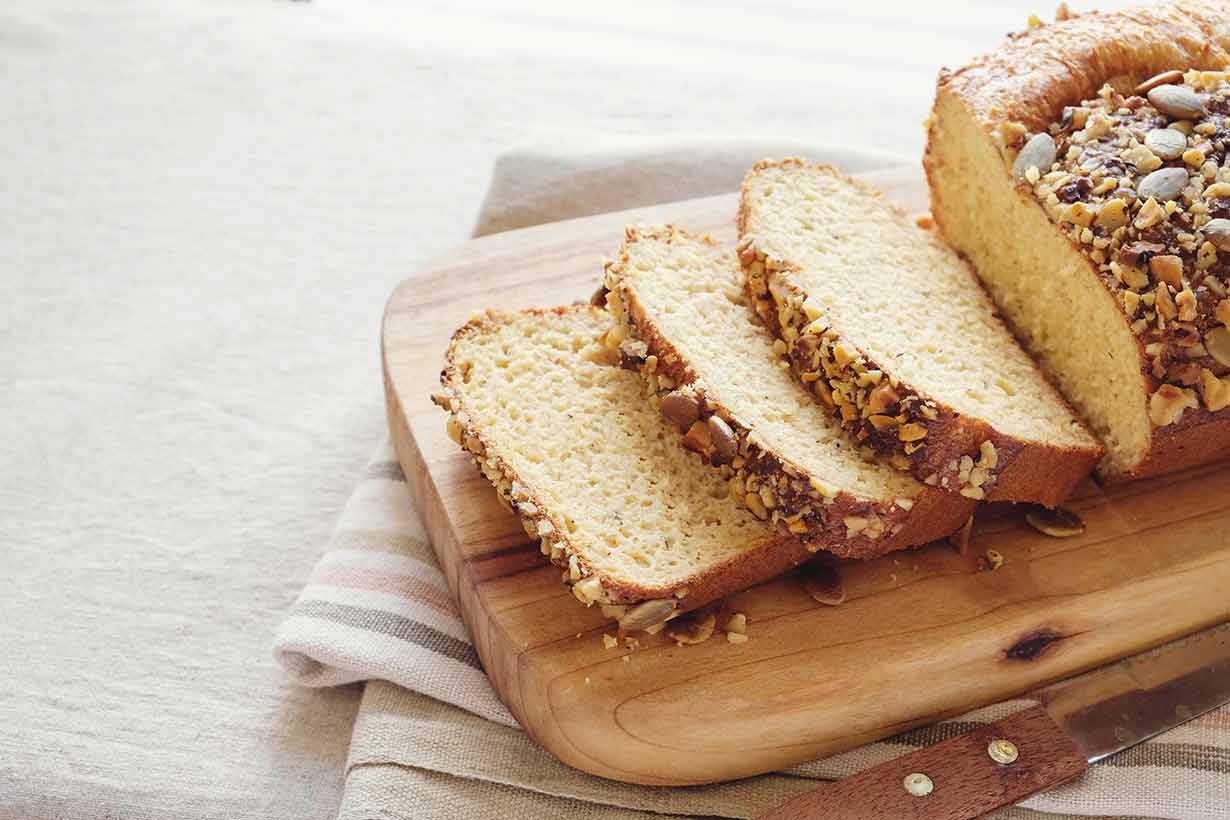

Another good option is soybean fettuccini and spaghetti from Bellabodonza. Both have about 6g net carbs per serving but honestly I think the serving size of 1/4 if the package is extremely generous. I think for most 1/8 of the package would be adequate. I don’t care for any of the vegetable noodle options. This is the closest I’ve found to a regular noodle
Thanks for the suggestion, Tony. That sounds like it might be a good option for many people too.
I really like all the suggestions,thank you
No problem, Barbara. Hope you find some new things you like!